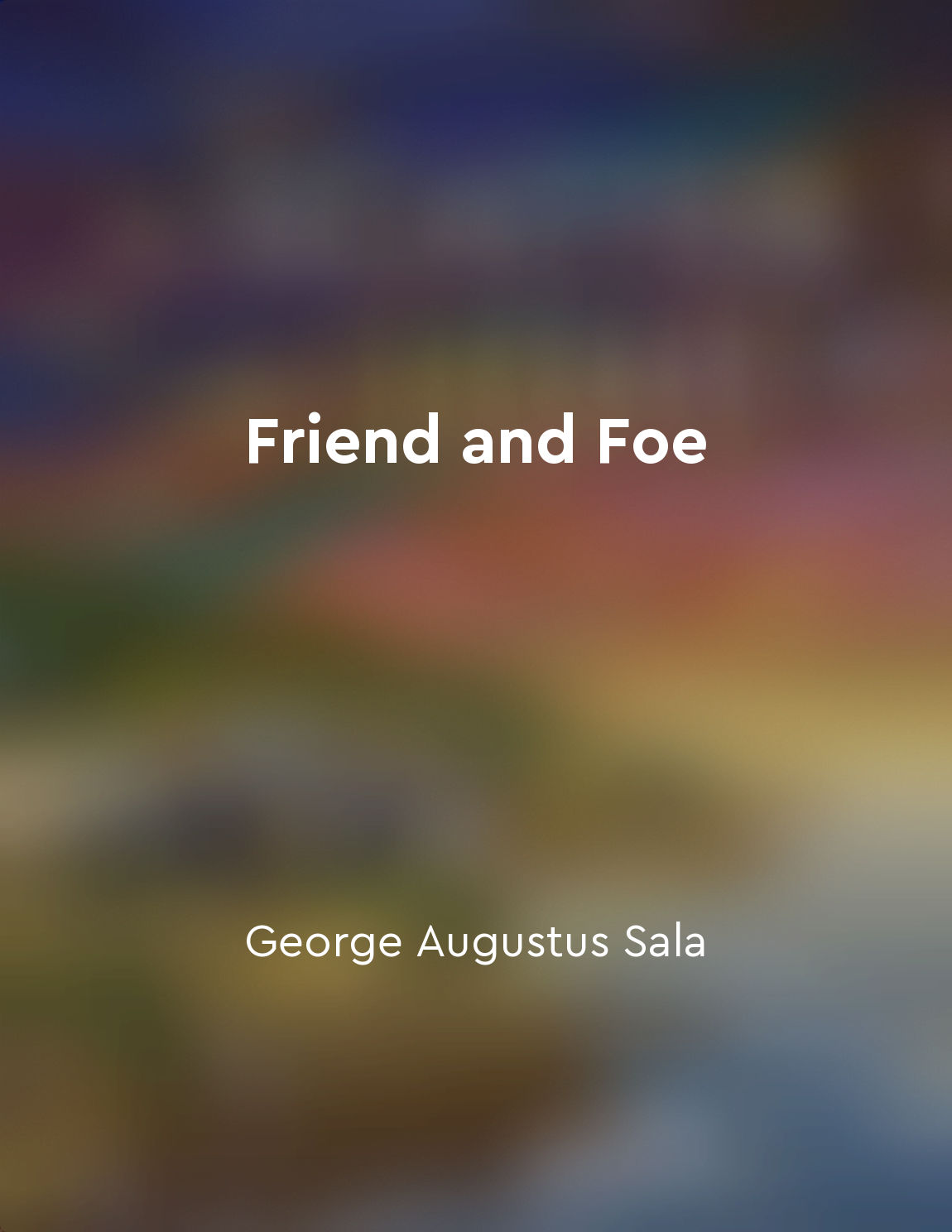Audio available in app
Injustice can breed bitterness from "summary" of Friend and Foe by George Augustus Sala
The seed of bitterness is often sown in the soil of injustice. When individuals are treated unfairly, when their rights are trampled upon, when they are denied the recognition and respect they deserve, bitterness takes root. It festers and grows, poisoning the heart and mind of the aggrieved party. Injustice can create a deep sense of resentment and anger, fueling a desire for retribution. The injustice becomes a wound that never heals, a scar that constantly reminds the individual of the wrong that was done to them. This bitterness can consume a person, clouding their judgment and impairing their ability to build meaningful relationships. Moreover, when injustice is allowed to go unchecked, it can spread like a contagion, breeding more bitterness in its wake. Those who witness or experience injustice may become embittered themselves, perpetuating a cycle of resentment and animosity. This collective bitterness can poison entire communities, leading to strife, conflict, and division.- The consequences of unchecked injustice are far-reaching. Bitterness can corrode the bonds of trust and cooperation that hold societies together. It can undermine the foundations of justice and equality, eroding the social fabric. In this way, injustice not only harms individuals but also weakens the very foundations of society itself.


